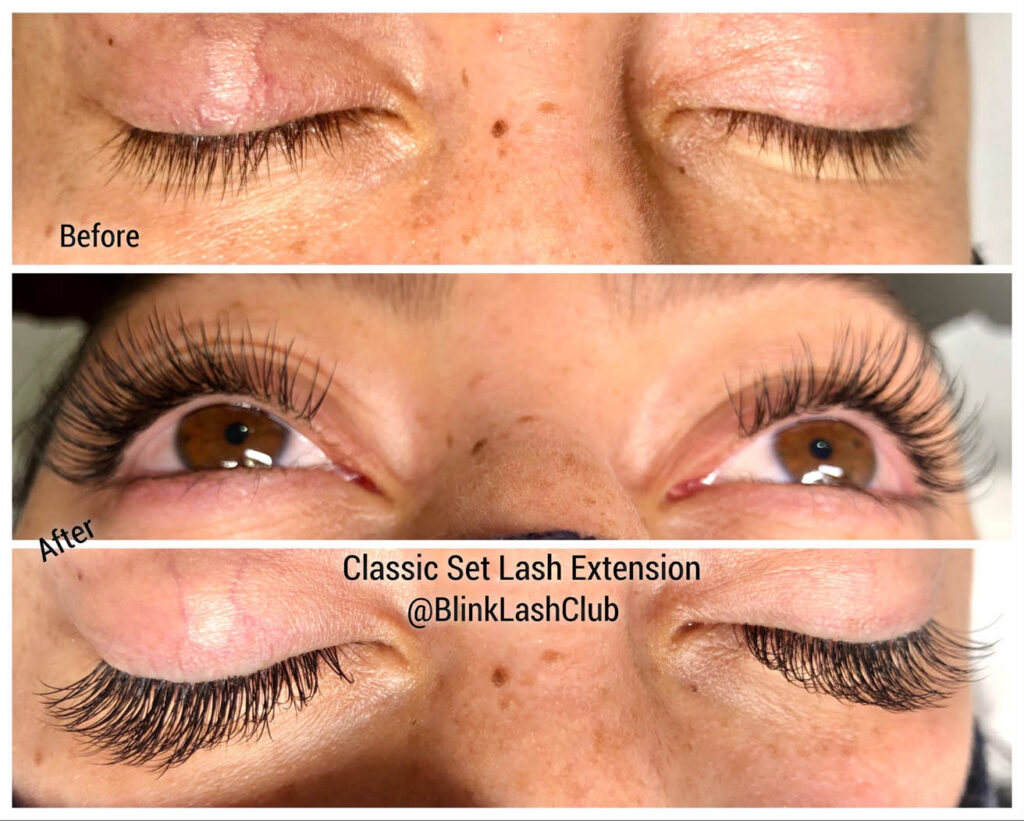- November 30, 2022
- Comments: 0
- Posted by: admin
 Eyelash extensions are semi-permanent fibers that are attached to your natural eyelashes in order to make your lash fringe look longer, fuller, and darker. Individual lash extensions are applied to each of your individual natural eyelashes (one extension per natural eyelash) using a semi-permanent glue. The material varies from studio to studio, but lash extensions can be made of synthetic, mink, faux mink, natural eyelashes, or silk fibers. Most studios offer a variety of extension lengths, curl patterns, and tints so clients can customize their look.
Eyelash extensions are semi-permanent fibers that are attached to your natural eyelashes in order to make your lash fringe look longer, fuller, and darker. Individual lash extensions are applied to each of your individual natural eyelashes (one extension per natural eyelash) using a semi-permanent glue. The material varies from studio to studio, but lash extensions can be made of synthetic, mink, faux mink, natural eyelashes, or silk fibers. Most studios offer a variety of extension lengths, curl patterns, and tints so clients can customize their look.
Types of Eyelash Extensions
Lash artists use three different kinds of eyelash extension materials: mink, silk, and synthetic. Some studios also carry “faux mink” extensions, which are technically just synthetic extensions that mimic mink extensions. Most lash studios have their preference for the type of lash extension they use and won’t always ask you if you have a preference. So if you’re vegan or allergic to cats, be sure to specifically request that mink lash extensions are not used on you. No lash extension type lasts longer than the other, but mink and silk lashes tend to have a more natural look, while synthetic lashes can be thicker and darker, which is better suited for those who want a bolder look. Within these three categories (mink, silk, and synthetic), there are varying degrees of length and curl to choose from. Typically your lash artist will use multiple lengths and curl strengths to create a wide-eyed effect, with longer lashes being placed toward the outer corners of the eyes and shorter lashes placed on the inner corners.
What’s the Application Process Like?
They are cautiously glued one by one using a safe, temporary adhesive that will not damage or cause any other problem to the real lash. The extension is only adhered to a natural eyelashes, not on the eyelid. This exact procedure is different in every parlor, here’s what you can expect:
- Evaluation: Before the process, the artist should go through all the cons and advantages of having the extension procedure before gluing them, and also ask about any conditions the client may have that would make process unsafe for them. The technician also ask the client to take out the contact lens if they wear those.
- Choose the Length and Curl tightness: the cosmetician will start the process by asking the client what type of appearance they’re rooting for, whether that be more bold or more natural. Upon the desired look result, the client choose a safe length and curl strength for the extensions. Also the technician might choose to use up to 2-3 different extension lengths, using longer extensions on the outer corners and shorter extensions on the inner eyes.
- Cleaning the Eye Region: the client will lie down in a comfortable position. Then, the artist will cleanse the eye to eliminate all makeup, oil, and germs from the region.
- Putting the Tape and silicone pads: the clients natural eyelashes are shut for the process, which usually takes a few hours, varying on the number of extensions the cosmetician is putting. The technician will then put an under-eye gel to the lower lash line to keep the lashes out of the way and give a concentrated background to work against. Then, the silicone pads will be put in place with safe tape on both sides of the eyelid.
- Application: with tweezers, the extension artist will put the end of each extension in the lash adhesive and then glue it to each of the client’s lash. For a more voluminous look you necessitate more extensions per each natural lash.
- Drying: The lash adhesive cools very swiftly, but the lash cosmetician will most likely have the client wait around 10 minutes for all the extensions to dry down in place.
- Removing the Tape: after the extensions are fully dry, the lash technician will eliminate the under-eye silicone pads and tape.
